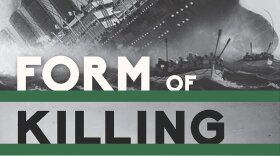Nearly 2,300 items from the Lenox Library just completed a journey from the bookshelves to the internet. It’s part of an effort to preserve history while meeting researchers the curious where they populate in the 21st century.Over the past two years staff at the Lenox Library has been compiling photos, postcards and maps chronicling the Berkshire town’s history to make them available for the world to see.
“This is a way to get all our images out there so that people can do research or just enjoy them because it’s their heritage,”said executive director Sharon Hawkes. “It’s also important to us as a preservation tool in case these things deteriorate further we’ll always have the content that’s within the images and documents.”
The library’s items can now be seen on the website Digital Commonwealth. Started out of the Boston Public Library in 2003, the nonprofit launched a new website last year that currently has more than 173,000 digitized items from 130 organizations across Massachusetts. Tom Blake is the digital projects manager at Boston Public Library.
“Once you digitize materials they’re really a lot more powerful and meaningful once they’re online together,” Blake said. “So you can mix and match. If one particular library has photographs from a certain photographer and another library has different photographs by the same photographer, instead of having that collection segregated and silo-ed in their respective institutions they can now be brought together and people can search for things across the statewide collection.”
Digital Commonwealth has two imaging labs, one with a 90-inch by 72-inch movable vacuum easel that gently pulls items down that is set up under a high-resolution digital camera. The imaging services are free to any organization willing to showcase its collection on the website. Blake says workers can digitize up to 300 items a day — mostly books, maps and posters. He says the most unusual item digitized so far was Helen Keller’s bathing suit.
“If you start looking through our public libraries you’re going to find a history of community members who were collectors, maybe a little eccentric, that just gave their stuff to the public library for whatever reason,” Blake said. “Public libraries, because they tend to be community centers, say ‘Sure we’d be more than happy to take this.’”
The Lenox Library’s items are mostly photos of Gilded Age Berkshire cottages and posters from the Berkshire Symphonic Festival, now known as Tanglewood. Hawkes says many of the cottages no longer exist so the plate glass images from photographer Edwin Hale Lincoln are some of the only remaining evidence.
“They actually scanned the glass plate negatives and were able to try them into positive images for us,” Hawkes said.”What was really exciting was we found more detail on those scanned images than we had ever seen in print. So we are getting a lot more detail and information off of that group of photos.”
After loading up one cargo van with the nearly 2,300 items and trekking them to Boston to be scanned, Hawkes says library staff is already creating a list of what’s next among its 20,000-item special collection.
“The town’s non-importation agreement signed by the property owners, who would’ve been the men in those days, in 1774 saying that we will not import or consume anything from Great Britain,” Hawkes explained. “This is one year after the Boston Tea Party and two years before 1776 hit.”
Other Berkshire organizations like the North Adams Public Library and the Clark Art Institute are already featured on Digital Commonwealth. Blake says over the last five to 10 years digitized collections are becoming more popular among libraries and archives.
“People are starting their information seeking behavior online and rather than moan about that and feel like it’s some sort of competition, as an industry, we understand we need to meet our users where they are,” Blake said. “Rather than waiting for the people to walk through the door and ask us a question about our collection, this is more of a push economy for us. This is not meant to replace a library visit; this is really meant to attract people.”








